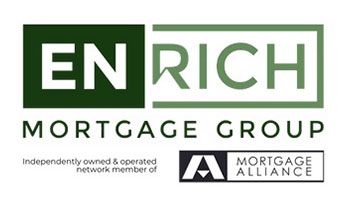Considerations for Parents Co-Signing Mortgages for Their Children
In the intricate dance of real estate transactions, parents often find themselves in a pivotal role when it comes to helping their children purchase a home. With the soaring costs of homeownership, many young adults turn to their parents for financial assistance, whether it be in the form of a down payment gift or by co-signing the mortgage. While these gestures can be invaluable in helping children achieve their homeownership dreams, they also come with a set of considerations and responsibilities that parents should carefully weigh. Here, we delve into the key considerations for parents co-signing mortgages for their children.
1. The Dynamics of Co-signing Mortgages
Co-signing a mortgage entails more than just providing a financial guarantee. It involves assuming shared responsibility for the loan alongside the primary borrower(s), typically the children in this context. One of the primary implications of co-signing a mortgage is that it affects the credit profile of all parties involved. Any missed or late payments will reflect on the credit reports of both the primary borrower(s) and the co-signer(s), potentially impacting their creditworthiness and future borrowing capabilities.
2. Ownership Structure and Legal Implications
Beyond financial obligations, co-signing also extends to property ownership. All borrowers, including the parents as co-signers, will be registered on the title of the property. It's crucial to have a conversation with a legal expert to determine the most suitable ownership structure—whether as joint tenants or tenants in common. Joint tenancy implies equal ownership shares, while tenants in common allow for customized percentage ownership.
3. Exit Strategies and Flexibility
Parents considering co-signing mortgages should also explore exit strategies to mitigate long-term commitments. Some lenders offer provisions to remove co-signers from the mortgage after a specified period, typically one year, provided the remaining borrower(s) demonstrate sufficient financial capacity to sustain the loan independently. Alternatively, transferring the mortgage to a different lender or refinancing the mortgage with the primary borrower(s) alone can facilitate the removal of co-signers, albeit subject to qualifying criteria and market conditions.
4. Tax Implications and Financial Planning
It's essential to consider potential tax implications associated with transferring ownership or refinancing the mortgage. If the property serves as the primary residence for the children, removing parents from the title or mortgage may not trigger immediate tax consequences. However, changes in property use, such as converting it into a rental property, could have tax implications. Consulting with a qualified accountant is advisable to navigate the complexities of tax laws and ensure compliance.
In the realm of real estate financing, the decision to co-sign a mortgage for a child involves careful deliberation and foresight. While it can be a meaningful way to support their homeownership aspirations, it's crucial for parents to understand the implications and responsibilities associated with this commitment. At Keith Uthe Demystifying Mortgages, we specialize in simplifying the complexities of mortgage financing, empowering clients to make informed decisions. If you're considering co-signing a mortgage or exploring other financing options, we're here to help. To learn more about our services and how we can assist you in navigating the complexities of business finance, please click here. If you have any questions or require further assistance, feel free to contact us at (403) 614-8843 or email us at keith@enrichmortgage.ca.
Recent Posts





